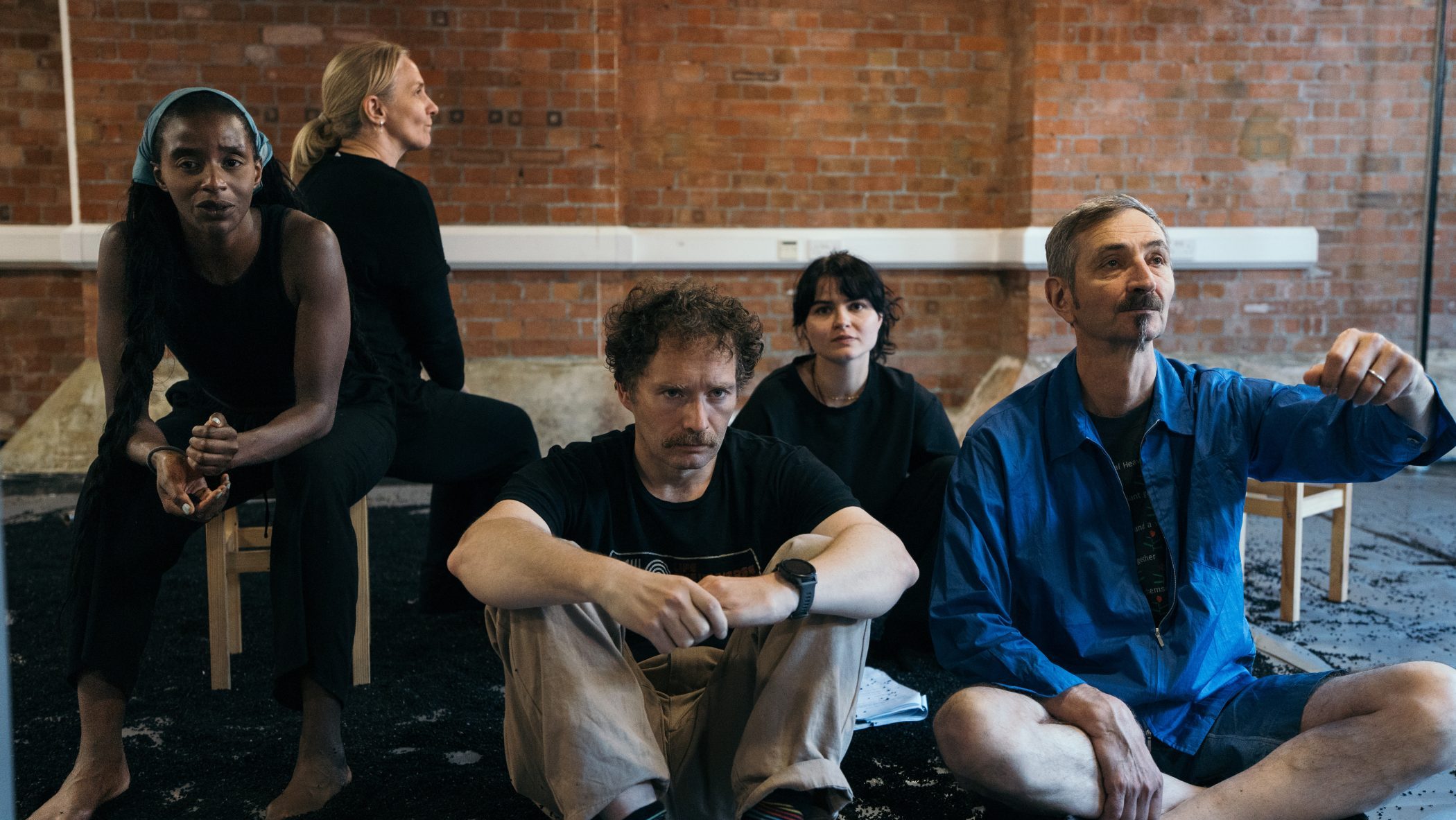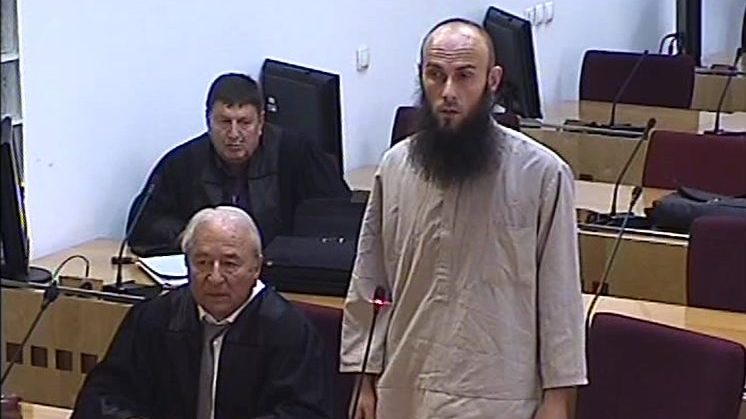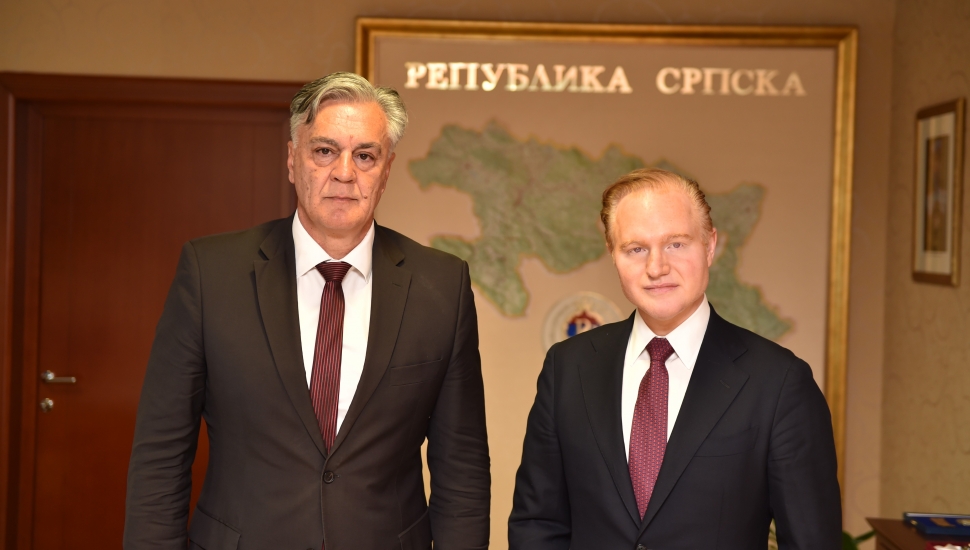This post is also available in: Bosnian
Suspects and defendants charged with of grave crimes who don’t have the financial resources to pay for their own defense, have the right to an ex-officio attorney. The work of ex-officio attorneys is paid for by Bosnia’s justice system.
In most cases, the majority of defendants charged with serious crimes decide to employ ex-officio attorneys – 90% of war crime defendants currently standing trial at the Bosnian state court are represented by ex-officio attorneys.
Lawyer Radivoje Lazarevic has decided to provide ex-officio representation to clients charged with war crimes at cantonal and district courts, although he knows he’ll most probably have to finance their defense for years. After the court proceedings are concluded, he expects to eventually be compensated for his expenses.
“When a defense attorney starts to represent someone, he must be aware of and accept the fact that he has to finance his own work until the completion of the trial, in order to be able to charge for his work, at least on paper. Then he waits for an additional two years to be remunerated for those costs,” Lazarevic explains.
Attorneys have called on courts to not delay their payments for ex-officio services, because prolonged payments endanger the right of defendants to legal representation. A lack of resources and small budgets are cited as reasons for delays in making those payments.
Payments for ex-officio services prolonged for years
Defense attorney Dragoslav Peric is frustrated with the fact that he has to wait such a long time to be compensated for cases he handled before cantonal and district courts. Peric says that when proceedings are completed, he prepares a list of expenses for his services and submits them to the relevant court. Various courts have approved his expenses for previous cases, but have stalled on his payments for years.
Peric describes a case he handled at the District Court of Eastern Sarajevo, in which a decision to release payment for his services was issued in March 2014. However, none of the defense attorneys involved in the case, including Radivoje Lazarevic, have been paid yet.
“I tried contacting the Ministry of Finance of Republika Srpska and the court in order to find out what the problem is, but one side transfers responsibility to the other and vice versa. The Ministry of Finance said it needed some sort of approval from the court, while the court said, ‘We have nothing to do with it. It should be dealt with by the Ministry of Finance,’” Lazarevic explains.
Defense attorneys interviewed by BIRN-Justice Report complain that the lack of timely payments affects the quality of their work. They personally finance the collection of evidence, meetings with witnesses, and travel to hearings, which are frequently held in other towns.
Lazarevic said he’ll continue to accept and defend clients even at courts that owe him pending payments.
“I’m of the opinion that I can bear the cost, but the fact is that it costs me between 70 and 100 euros to come to Sarajevo and go back and have one meal during my stay. Therefore, this amount doesn’t include any other costs,” Lazarevic points out.
Branko Maric, the president of the federation bar association, says this practice leads to a situation in which defense teams don’t have an equal footing at trials.
“If I don’t have any resources for the defense, if the court delays paying my expenses, and if it doesn’t want to contribute to the remuneration of any other expenses, how can the rights of the client be fully protected? It’s no longer an issue of the practice of law, but of equitable treatment of all defendants. If the state guarantees you the right to ex-officio defense, it shouldn’t just be on paper, the choice and the protection should actually be implemented,” Maric said.
Edina Hairlahovic, the spokesperson of the Cantonal Court of Bihac, agrees that attorneys representing defendants before the court wait a long time for their payments.
“The reason is simple – there are no resources. The court’s budget depends on the canton’s budget,” Hairlahovic explained.
Hairlahovic says expenses incurred by ex-officio defense attorneys are the highest in war crime cases.
“For instance, a defense attorney in one case held before our court managed to get reimbursement for expenses amounting to approximately 40,000 KM. This relates to one case only. It is indicative of how big the total expenses are,” Hairlahovic said.
Statute of limitation on payments
The federation bar association claims that ex-officio defense attorneys are the last to be paid out of court budgets.
“If we’re talking about one budget which has to cover all that, they always find money to pay salaries to people directly associated with that budget, but we are always somewhere at the end of that chain. No money, delays…However, if someone wanted to do it properly, the things would be totally different,” federation bar association president Branko Maric says.
Attorneys say they may not receive some payments at all, due to a statute of limitations on compensation.
However, they are obliged to pay taxes to the state as soon as they receive approvals for remuneration from courts.
“I turn my car on, I travel to eastern Sarajevo, I represent someone. For what? For some money which I’m not even sure I’ll get. If the time specified in the statute of limitations passes, what can I do? If a court proposal for execution was filed three years ago, the court can reject me and say the time specified in the statute of limitations has passed and it’s all over. We are totally unprotected,” attorney Dragoslav Peric says.
Fees paid to attorneys are determined by the state court, as well as tariffs set by the Bar Association of the Federation of Bosnia and Herzegovina and the Bar Association of Republika Srpska. Nevertheless, attorney fees are calculated differently by various courts.
For instance, the fee paid for one war crime hearing held before a cantonal court is 900 KM, while one appearance before the state court is 780 KM. When a hearing lasts longer than one day, the attorney gets 50 percent of that amount.
Although the fees paid for hearings at the state court are lower, attorneys say their payments are more predictable, which makes their work easier.




